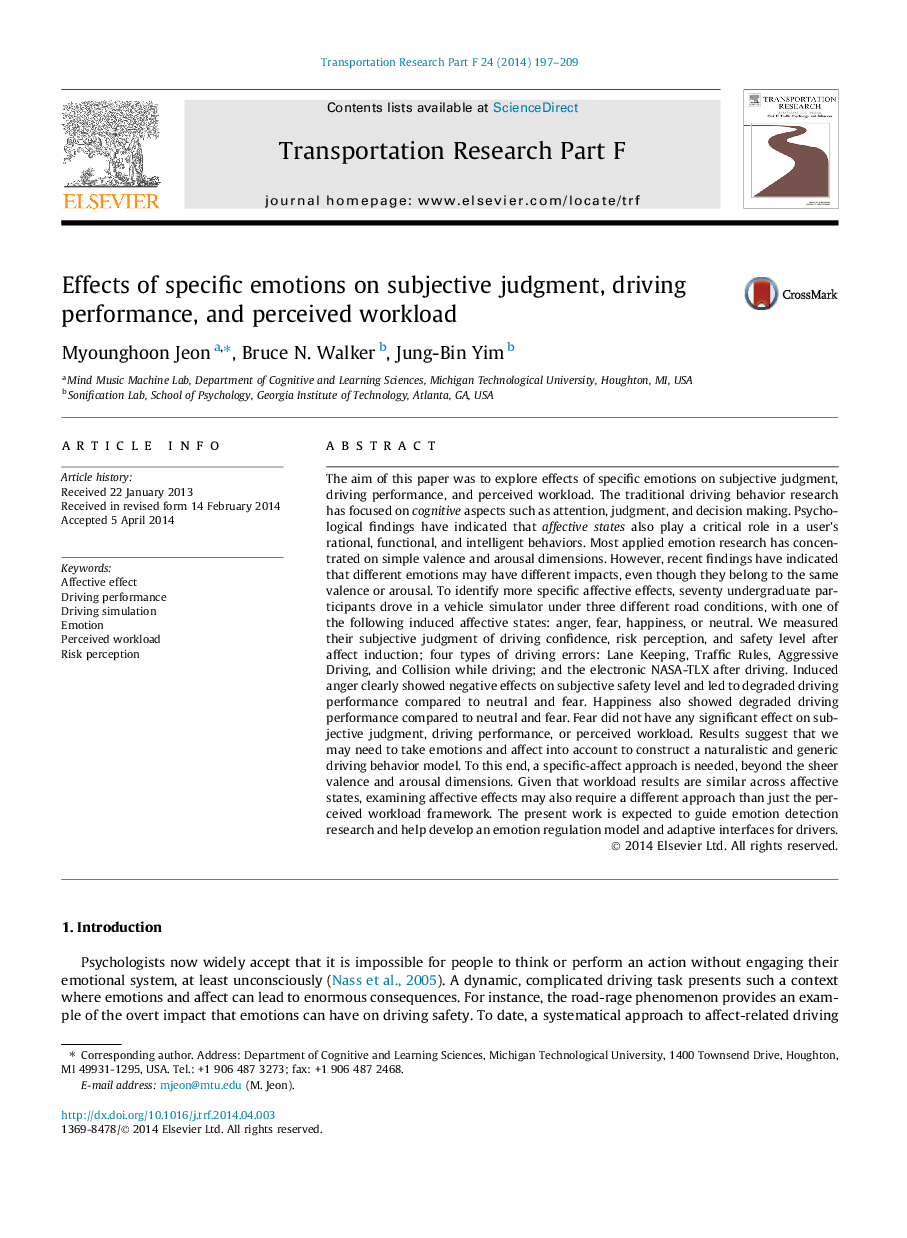| کد مقاله | کد نشریه | سال انتشار | مقاله انگلیسی | نسخه تمام متن |
|---|---|---|---|---|
| 897780 | 1472456 | 2014 | 13 صفحه PDF | دانلود رایگان |
• The traditional driving behavior research has focused on cognitive aspects.
• Participants drove in a simulator with induced anger, fear, happiness, or neutral.
• Anger and happiness degraded driving performance compared to fear and neutral.
• Anger showed lower safety level and workload results are similar across affective states.
• Effects of specific emotions are diverse beyond the valence and arousal dimensions.
The aim of this paper was to explore effects of specific emotions on subjective judgment, driving performance, and perceived workload. The traditional driving behavior research has focused on cognitive aspects such as attention, judgment, and decision making. Psychological findings have indicated that affective states also play a critical role in a user’s rational, functional, and intelligent behaviors. Most applied emotion research has concentrated on simple valence and arousal dimensions. However, recent findings have indicated that different emotions may have different impacts, even though they belong to the same valence or arousal. To identify more specific affective effects, seventy undergraduate participants drove in a vehicle simulator under three different road conditions, with one of the following induced affective states: anger, fear, happiness, or neutral. We measured their subjective judgment of driving confidence, risk perception, and safety level after affect induction; four types of driving errors: Lane Keeping, Traffic Rules, Aggressive Driving, and Collision while driving; and the electronic NASA-TLX after driving. Induced anger clearly showed negative effects on subjective safety level and led to degraded driving performance compared to neutral and fear. Happiness also showed degraded driving performance compared to neutral and fear. Fear did not have any significant effect on subjective judgment, driving performance, or perceived workload. Results suggest that we may need to take emotions and affect into account to construct a naturalistic and generic driving behavior model. To this end, a specific-affect approach is needed, beyond the sheer valence and arousal dimensions. Given that workload results are similar across affective states, examining affective effects may also require a different approach than just the perceived workload framework. The present work is expected to guide emotion detection research and help develop an emotion regulation model and adaptive interfaces for drivers.
Journal: Transportation Research Part F: Traffic Psychology and Behaviour - Volume 24, May 2014, Pages 197–209
